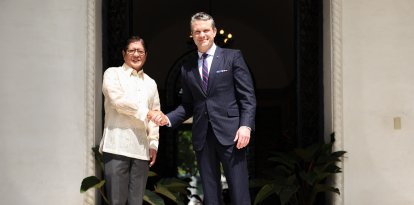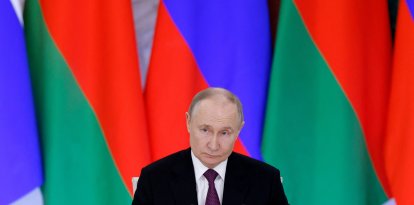European Union wants to prepare its citizens for war
The Commission, the bloc's executive body, will meet Wednesday to review its defense policies.

Eurocorps flags parade in Strasbourg.
The European Union aims to ensure its citizens are prepared for any eventuality, including war. On Wednesday, the Commission, the bloc's governing body, will convene to assess key defense policies that directly impact the Union’s citizens.
The EU's new preparedness strategy takes a comprehensive approach, addressing various needs beyond the potential threat of military invasion. Among the measures under consideration, according to media reports, is a requirement for each household to be equipped with essential survival supplies.
- Essential items such as medicine, drinking water, non-perishable food, and other basic necessities would become standard in every home. These supplies would be available to citizens not only in the event of war but also in the case of natural or climatic disasters.

World
The German Parliament finally approves amendments to the Constitution to rearm the country
Carlos Dominguez
Example of the Baltic countries
Several northern European nations near Russia already have similar plans in place. Finland, along with the Baltic states—Estonia, Latvia, and Lithuania—were joined last year by the Scandinavian countries, all of which published booklets containing basic survival instructions for their citizens.
The release of these manuals, most recently Sweden's, is yet another indication of the increasing sense of insecurity surrounding Russia that looms over Europe. Since Russia's invasion of Ukraine, the debate over reinstating compulsory military service has intensified across all EU countries.
Only a few countries, primarily the Nordic and Baltic nations, still have compulsory military service, while others, such as France, offer some form of voluntary or civic service with limited training.
From an expenditure and investment perspective, the EU has shown greater determination, already announcing a rearmament plan worth 800 billion euros in mid-March. This collective plan is expected to be paired with an increase in defense spending across individual countries, with targets set at around 2% for those nations currently investing below this threshold.
RECOMMENDATION





















